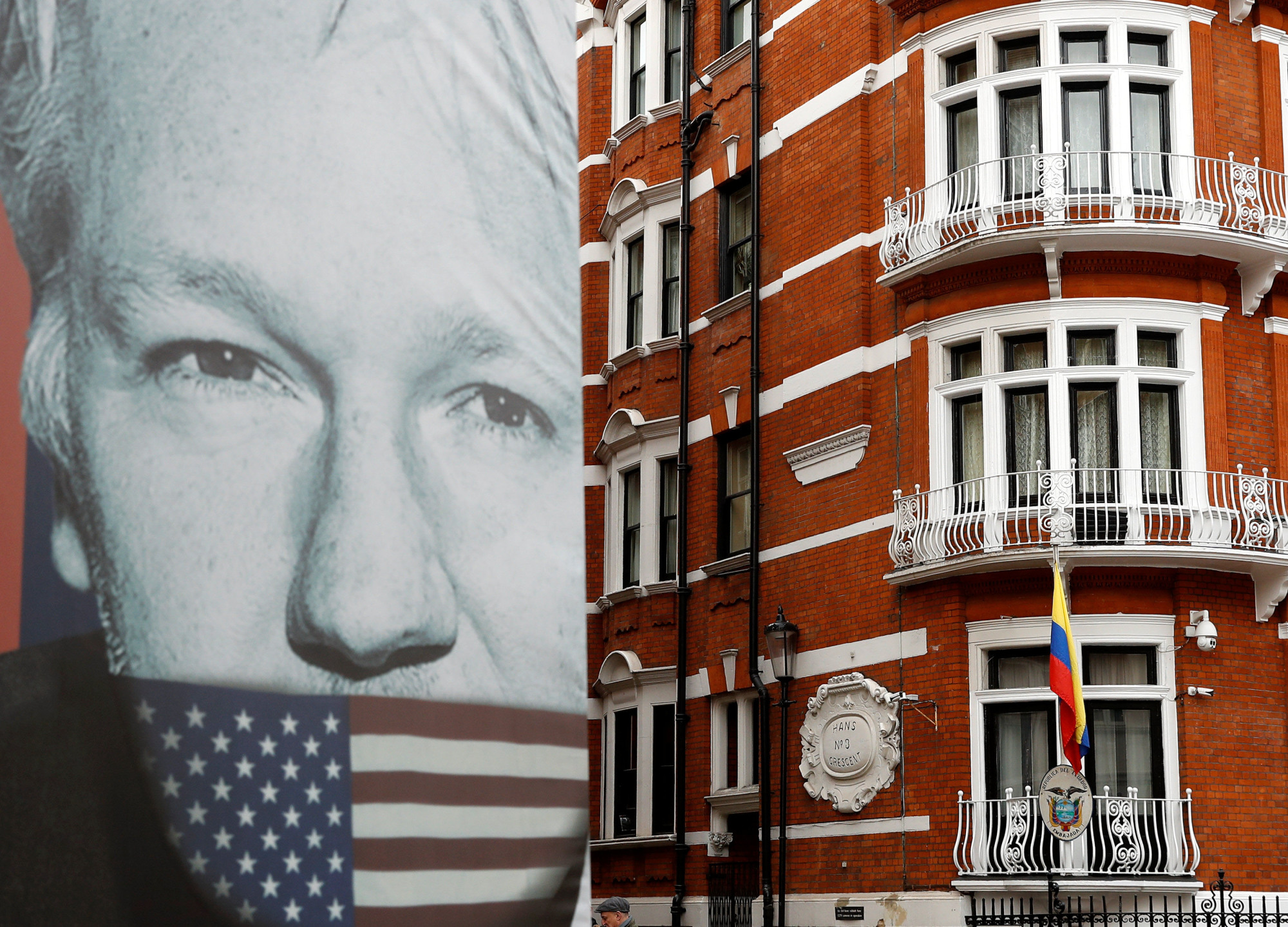Julian Assange's six-year stay at the Ecuadorian Embassy in London may be nearing an end: WikiLeaks, the organization he founded, says he may be pushed out within "hours or days." The standoff has lasted long enough: Assange should be legally cleared or convicted — just not in the United States.
When Assange leaves the embassy, he will probably be arrested immediately by the U.K. police on charges of jumping bail in 2010. That year, a court had ruled that he should be extradited to Sweden to face rape and sexual assault charges. Assange, however, said he feared the accusations were just a pretext for his eventual extradition to the U.S., where he might be tried for publishing state secrets. The fear of being handed over to the U.S. drove him to seek refuge at the Ecuadorian Embassy. The Swedish charges have been dropped but the fear remained, motivating Assange to stay in the embassy even after he'd worn out his welcome and his ability to communicate with the outside world was curtailed by the Ecuadorians.
If the U.K. police arrest him, an extradition process is likely. Last year, U.S. prosecutors accidentally revealed that an indictment had been issued against him under seal. That's standard procedure in cases where a suspect hasn't been arrested and U.S. authorities don't want that person to get suspicious. But in Assange's case, keeping the indictment secret no longer serves that purpose: He knows something is afoot, not least because Chelsea Manning, one of WikiLeaks' major whistleblowers, has been jailed since March for refusing to testify in an Assange inquiry.



